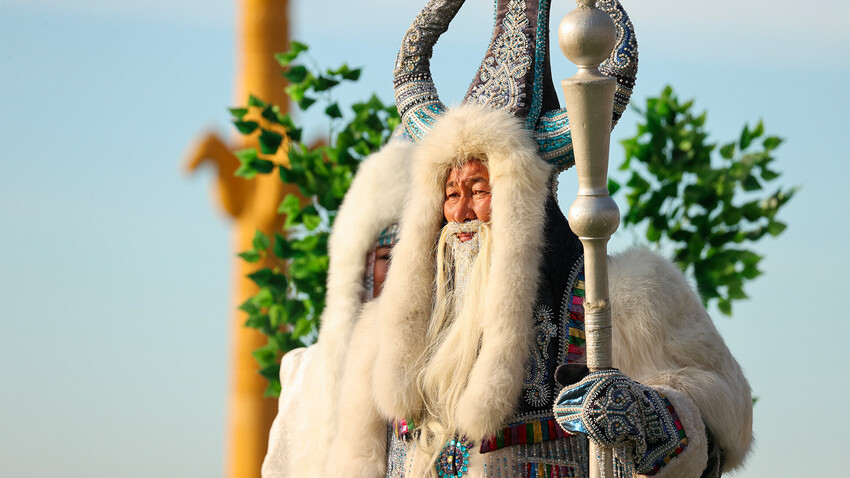
Yakut Santa Claus Chyskhaan (literally, Lord of the Cold)
Yuri Smityuk/TASSThe New Year has been celebrated in Russia on January 1 only for the last three centuries. Until 1492, it fell on March 1 and, before 1700, on September 1. In December 1699, Tsar Peter the Great released a decree on setting a new date for the annual cycle from 1700 onward – January 1.
Meanwhile, different ethnic groups preserved their own ‘New Year’ celebration traditions. Their dates depend on the natural conditions of these peoples’ environments and their systems of chronology – by a solar calendar (to which the Gregorian calendar also adheres), a lunar calendar or a lunisolar calendar.
For some ethnic groups, their chronology is only linked to the cycles of the Sun, so the dates for New Year don’t change substantially. The most vivid example is ‘Nowruz’, the celebration of the coming of spring and the New Year for the Iranian and Turkic peoples, which is celebrated by the solar calendar during the days of the spring equinox, which is March 19-22.
Other peoples use a lunisolar calendar, in which the cycles of the Moon are consistent with the annual movement of the Sun and the beginning of a month coincides with a new moon. That said, leap years by such a calendar have 13 months! For example, the Chinese New Year, celebrated according to the lunisolar calendar, falls on the first lunar day of the first month of the year. From the standpoint of the solar Gregorian calendar, it falls on one of the days between January 21 and February 21.
Muslim ethnic groups live according to a lunar calendar. A month has 29.5 days, it coincides with the phases of the Moon and their year is 11 days shorter than the Gregorian year. Their New Year is very flexible in relation to the Gregorian chronology.
Multinational Russia celebrates New Year both on the general civil date of January 1, as well as on the dates in accordance with the calendars of national holidays. We’ve assembled together the most well-known ones.
- ‘Surhuri’ – New Year of the Chuvash people (Chuvash Republic)
- ‘Shorykyol’ – New Year of the Mari people (Mari El Republic)
Initially, these holidays were celebrated on December 19-22, the days of the winter equinox. After these peoples converted to Christianity, the holidays “coincided” with Christmas on December 25. After the transition to the Gregorian calendar, these holidays were moved to the beginning of January.
- ‘Nog bon’ – Ossetian New Year (North Ossetia - Alania)
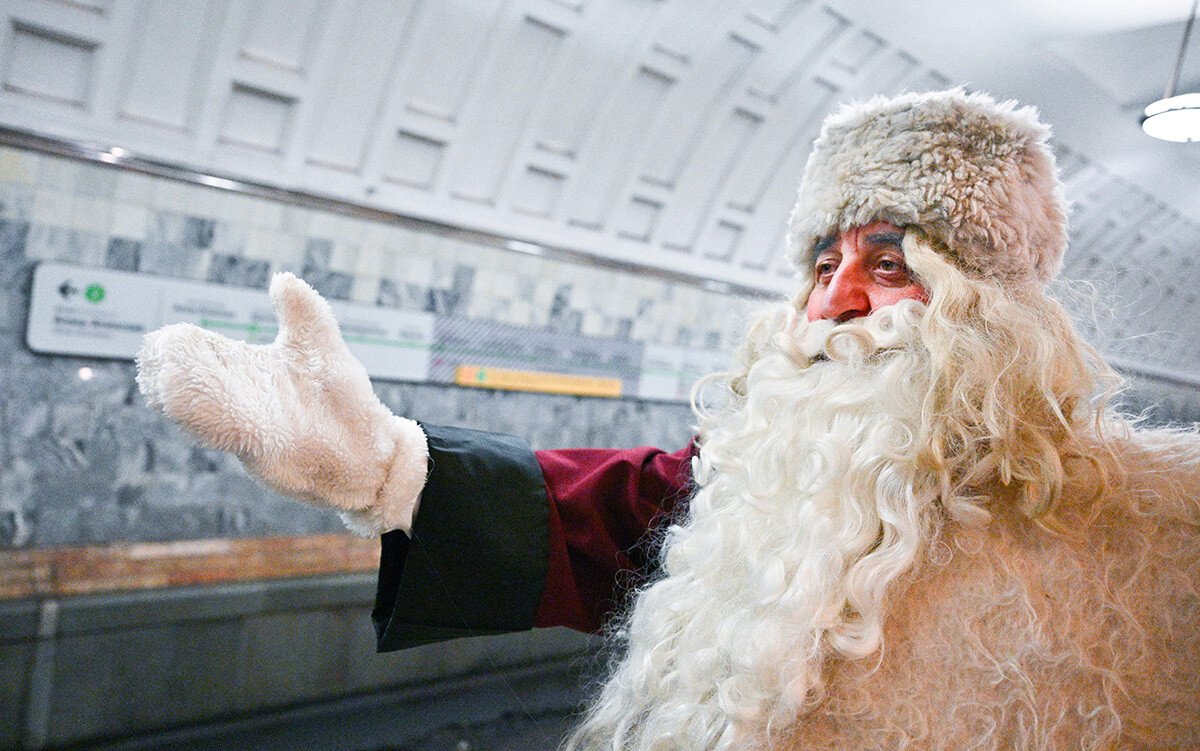
Mityn Dada (Ossetian Santa Claus)
Ramil Sitdikov/SputnikThis holiday is celebrated from Wednesday to Thursday of the second week of January, often on January 13-14, on the days of the Old New Year.
- ‘Tsagaan Sar’ – ‘White Moon’, the Kalmyk New Year (Republic of Kalmykia)
- ‘Shagaa’ – Tuvan New Year (Republic of Tuva)
- ‘Sagaalgan’ – Buryat New Year (Republic of Buryatia)
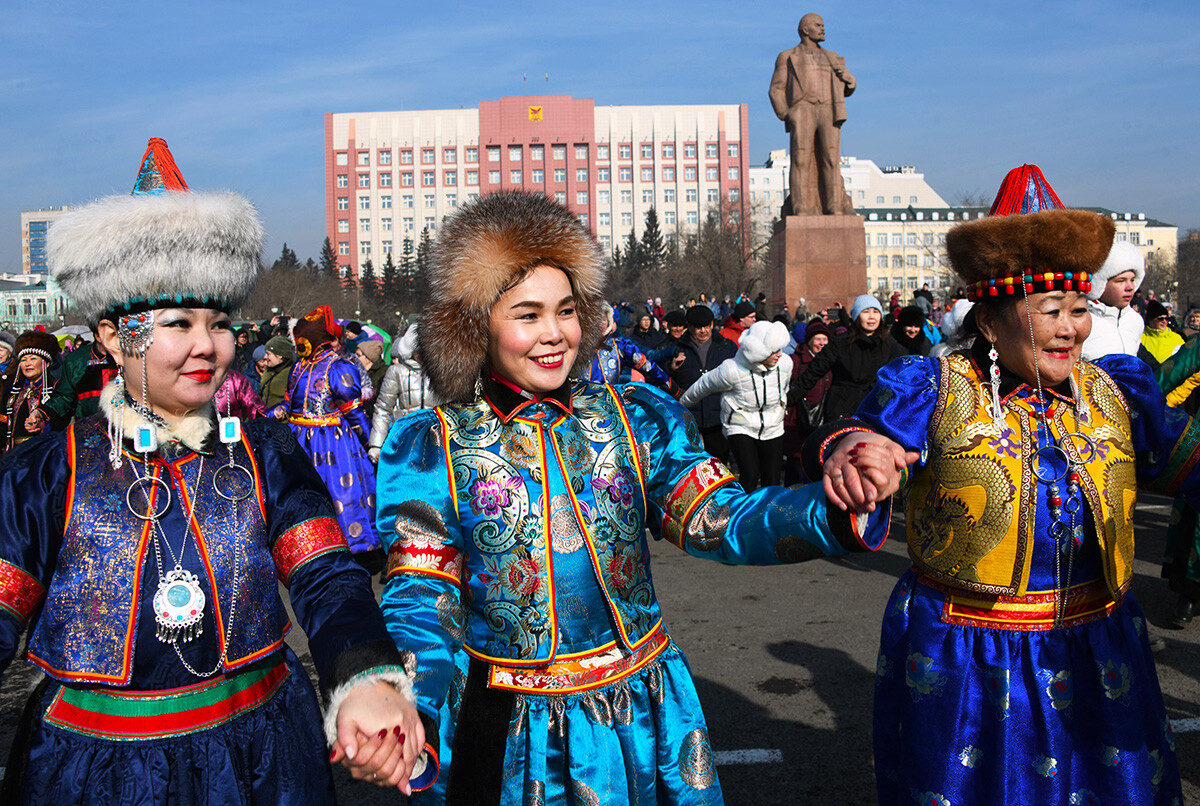
Participants of the folk dance-khorovod Yekhor at the Sagaalgan festival on the occasion of the Buddhist New Year in Chita.
Yevgeny Epanchintsev/SputnikCelebrated on the first day of the year, according to the lunisolar calendar.
- ‘Chaga-Bairam’ – Altai New Year (Republic of Altai)
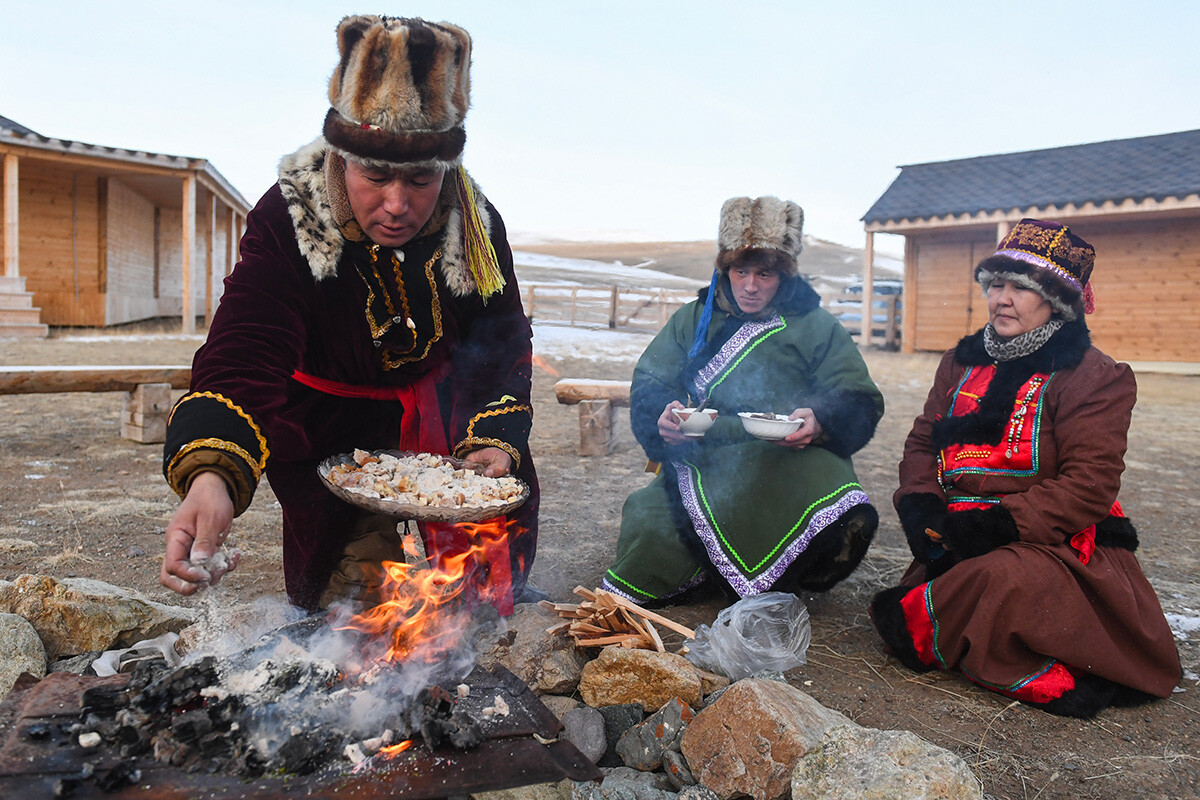
Local residents conduct a rite during a celebration of Chaga Bairam, a New Year festival according to the Lunar calendar, in Saylyugemsky National Park, Kosh-Agach District.
Kirill Kukhmar/TASSCelebrated on the fourth, sixth or eighth day of the new moon, according to the lunisolar calendar. The date is established annually by the Government of the Republic of Altai.
- ‘Nowruz’ – celebration of the coming of spring and the New Year (the republics of Tatarstan, Bashkortostan, Crimea, as well as the republics of the North Caucasus)
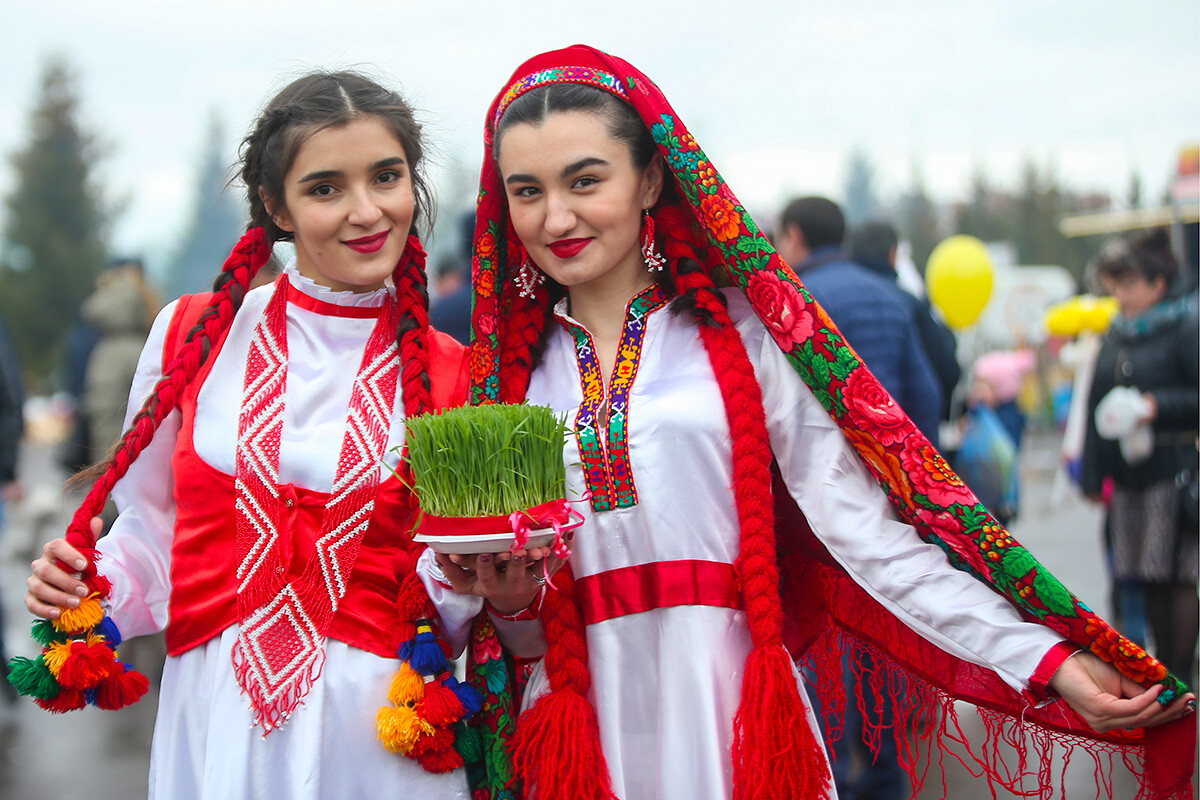
Celebrations of Nowruz holiday in Kazan
Yegor Aleyev/TASS- ‘Adyghe Ilesyshchle’ – Adyghe New Year (Republic of Adygea, the Kabardino-Balkarian Republic)
- ‘Yaran Suvar’ – Lezgin New Year (Republic of Dagestan)
- ‘Ebeltsan’ – Tabasaran New Year (Republic of Dagestan)
- ‘Khidin-Ush’ – Aghul New Year (Republic of Dagestan)
- ‘Yukhvanin Yug’ – Tsakhur New Year (Republic of Dagestan)
- ‘Er’ – Rutul New Year (Republic of Dagestan)
- ‘Jylgayak’ – Kumandin, Tubalar and Chelkan New Year (Republic of Altai)
- ‘Chyl-Pazhi’ – Shorian and Teleut New Year (Kemerovo Region)
- ‘Chyl Pazy’ – Khakas New Year (Republic of Khakassia)
Celebrated during the days of the spring equinox or the day before.
- ‘Vurny Khatl’ – Khanty New Year (Khanty-Mansi Autonomous Area)
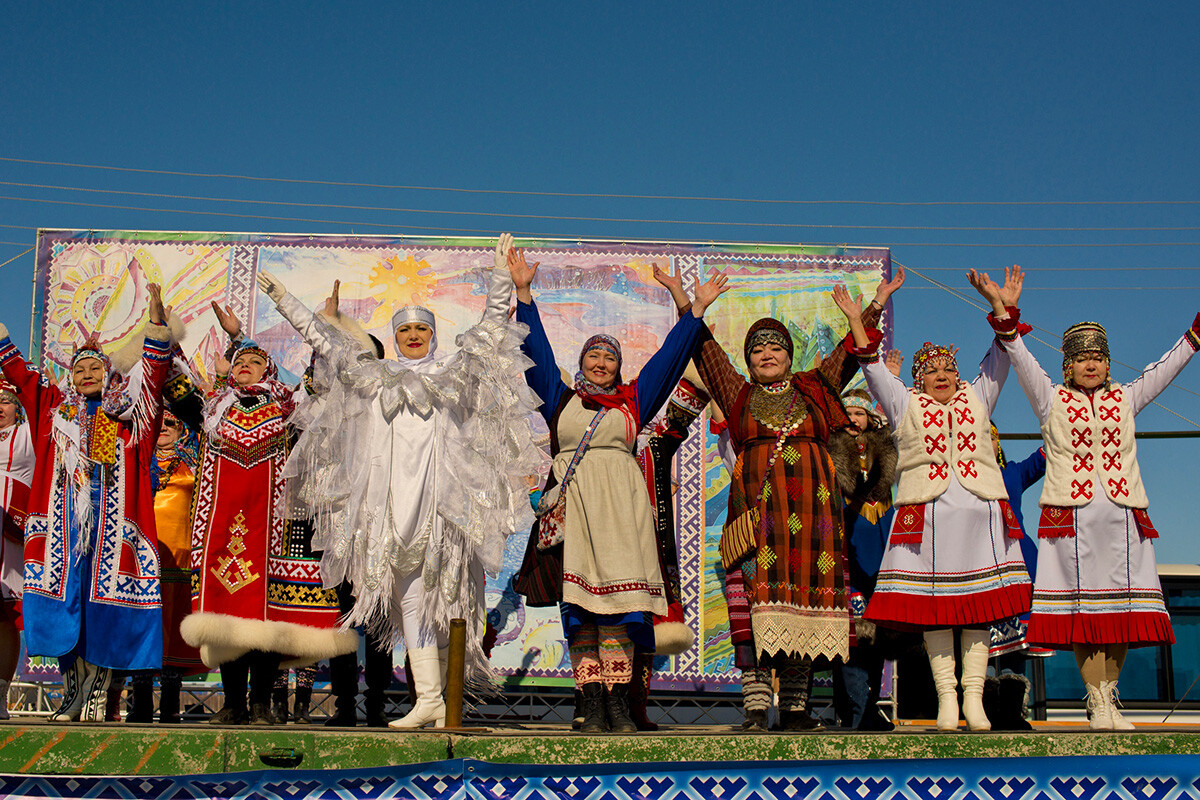
Vurny Khatl
Center of National Cultures | Nizhnevartovsk- ‘Urinekva khotal’ – Mansi New Year (Khanty-Mansi Autonomous Area)
This is known as ‘Crow Day’; it coincides with the Orthodox Christian holiday of the Annunciation.
- ‘Muchun’ – Evenk New Year (Krasnoyarsk Region)
- ‘Bakaldyn’ – Evenk New Year, Sakha Republic (Yakutia)
‘The Time of the Cuckoo’. Celebrated annually on the second Saturday of June.
- ‘Yhyakh’ – Yakutian New Year (Republic of Sakha [Yakutia], Krasnoyarsk Territory)
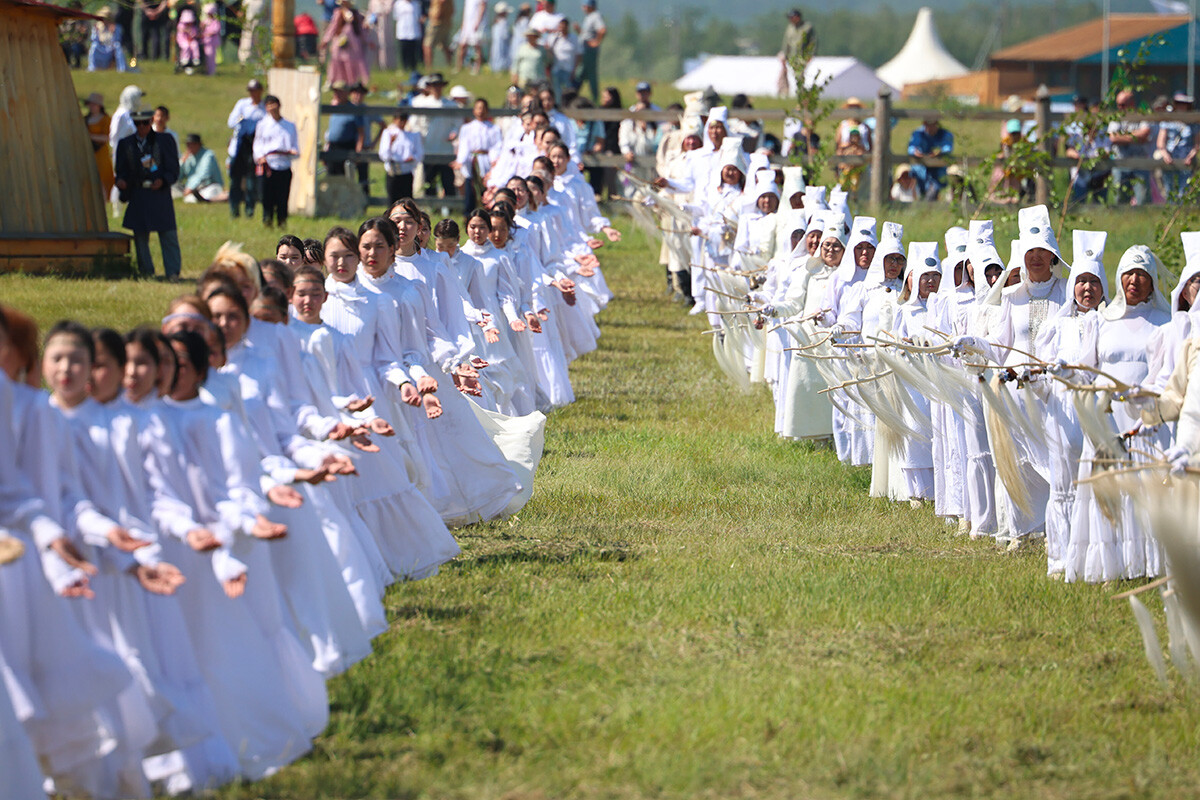
Participants of the national holiday "Ysyakh Tuimaady" in the ritual complex Us Khatyn.
Andrei Sorokin/Sputnik- ‘Khebdenek’ – New Year of the Evens (Magadan Region)
- ‘Nurgenek’ – New Year of the Evens (Kamchatka Territory)
- ‘Evinek’ – New Year of the Evens, Republic of Sakha (Yakutia)
- Female New Year of the Nanai people (Khabarovsk Territory)
Celebrated during the days of the summer equinox.
- Muslim New Year
Celebrated on the first day of Muharram – the first month of the year.
- The ‘Holiday of the Moose’ – New Year of the Selkup people (Yamalo-Nenets Autonomous Area, Tyumen Region, Krasnoyarsk Territory, Tomsk Region)
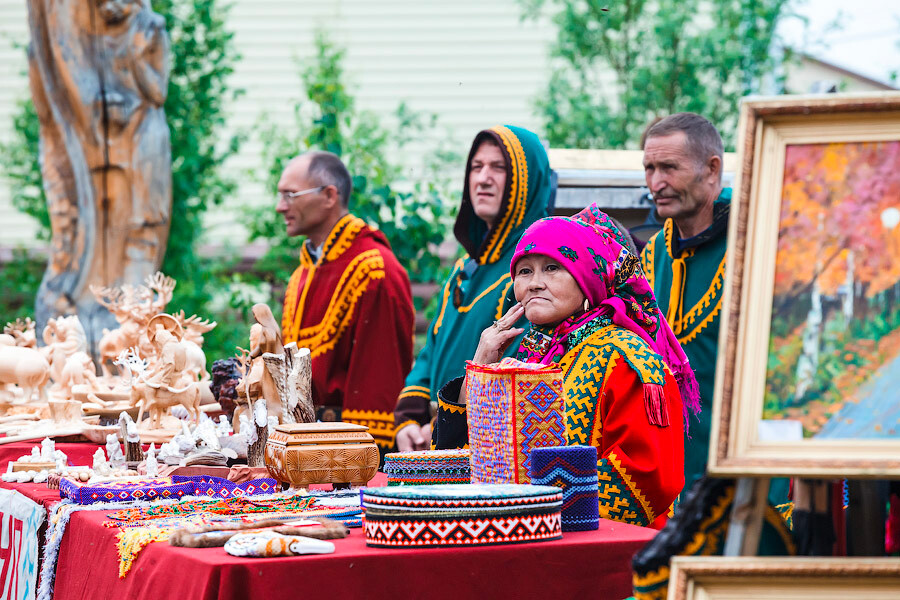
Selkups
Aleksandr Popov (CC BY-SA)Celebrated on the day of the last summer full moon.
- Eastern Orthodox liturgics or the ‘Start of the Indiction’ – beginning of the year in the Orthodox Christian calendar. According to the Julian calendar, which the Russian Orthodox Church follows, it falls on September 1.
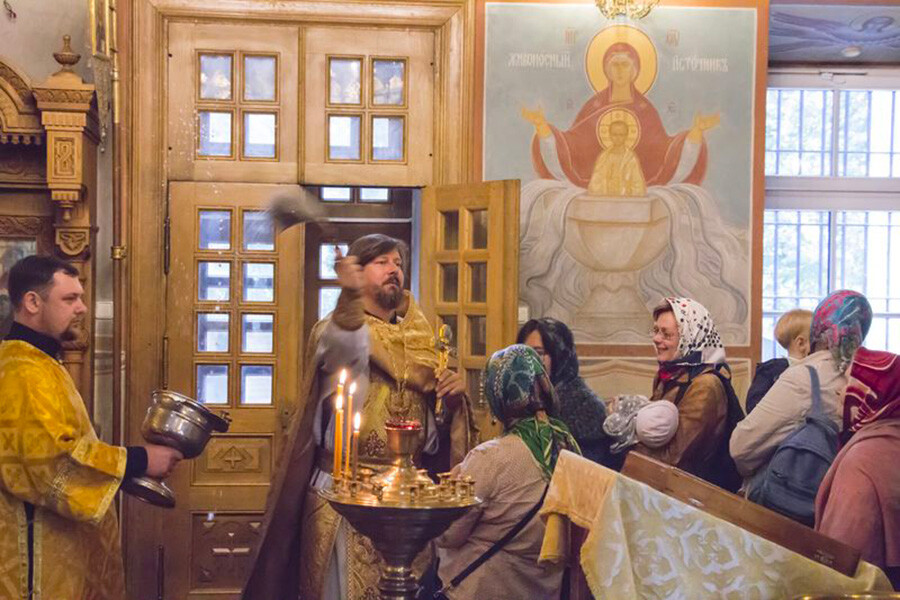
Festive prayer service on Indictus - Church New Year - in the village of Fedosyin (Novoperedelkino)
fedosino.ru- New Year of the Pomors (Arkhangelsk Region). The Pomors refused to obey the decree of Peter the Great of moving New Year to January 1.
- ‘Rosh Hashanah’ – Jewish New Year (Jewish Autonomous Region and other regions)
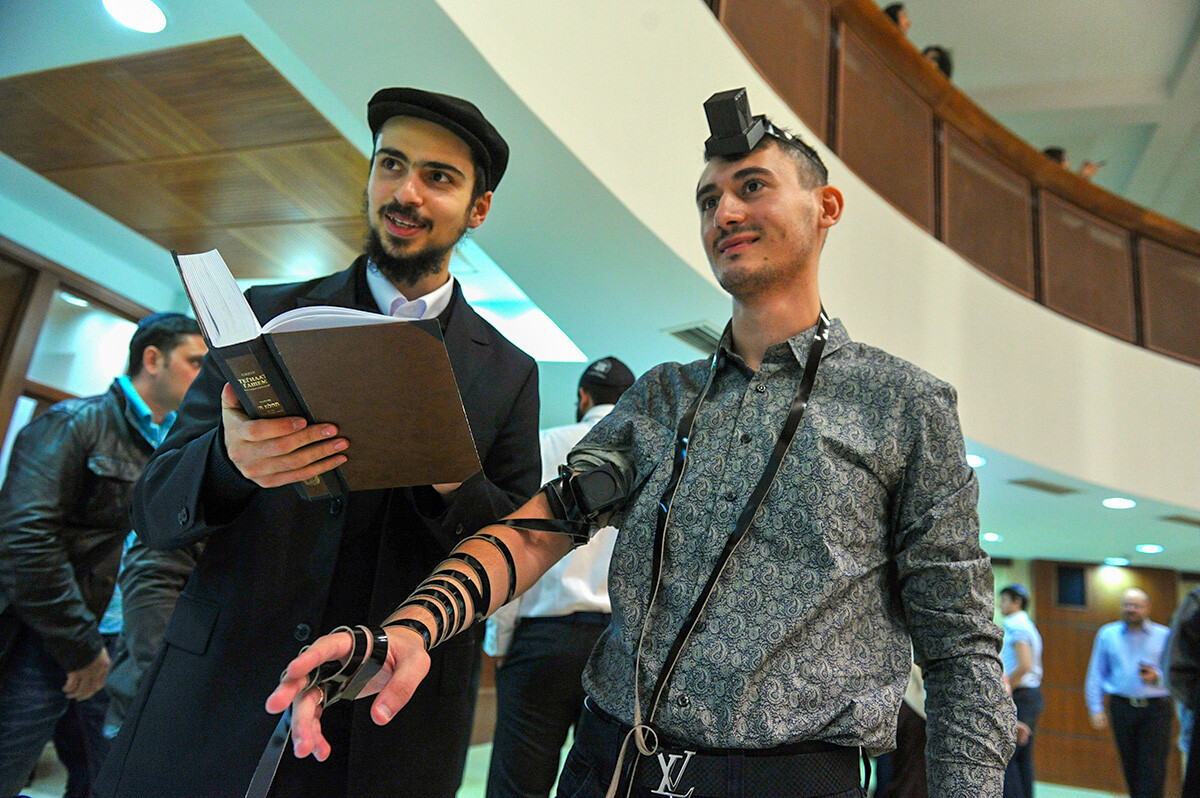
Young people before the Rosh Hashanah celebration, the Jewish New Year, at the Moscow Jewish Community Center.
Artyom Zhitenev/SputnikCelebrated during the new moon of the fall month of Tishrei by the Jewish (lunisolar) calendar, which falls in either September or October.
- Nenets New Year (Yamalo-Nenets Autonomous Area)
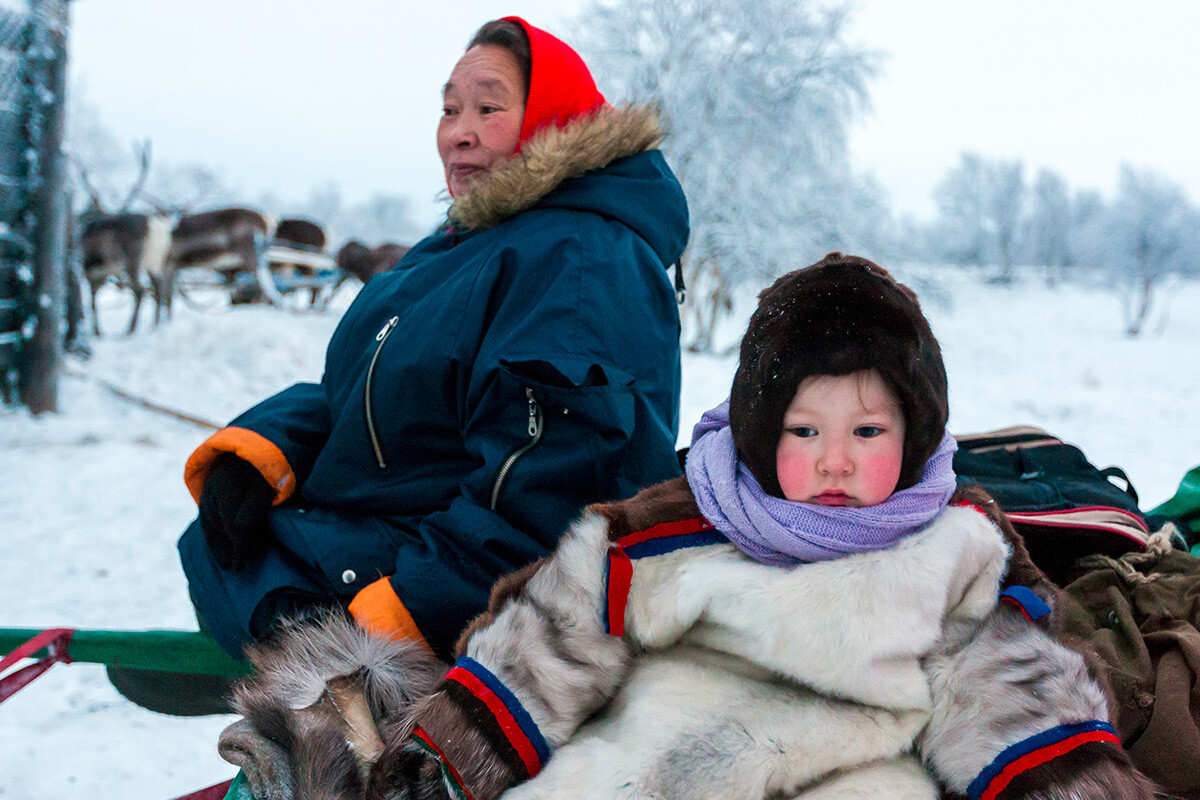
Yamalo-Nenets Autonomous Area, Russia - November 24, 2016: A child at the Kharp reindeer farm in the village of Krasnoye.
Anton Taibarei/TASSThe Nenets people lived in accordance with a lunisolar calendar. Their year begins with ‘Nosindalva’ – the month of the arctic fox hunt.
- ‘Pegytti’ – Chukchi New Year (Chukotka Autonomous Area)
- Male New Year of the Nanai people (Khabarovsk Territory)
- ‘Tuygivin’ – Koryak New Year (Magadan Region)
Celebrated during the days of the winter equinox.
Dear readers,
Our website and social media accounts are under threat of being restricted or banned, due to the current circumstances. So, to keep up with our latest content, simply do the following:
If using any of Russia Beyond's content, partly or in full, always provide an active hyperlink to the original material.
Subscribe
to our newsletter!
Get the week's best stories straight to your inbox